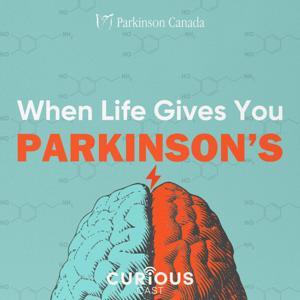"I wanted to know what kind of mutation I had, because I wanted to pay attention to the research.”
In this episode of the Parkinson’s Life podcast, we’re exploring the world of genetics, the role it plays in Parkinson’s, and how research in this area could transform the future of care for everyone with the condition.
Genetics is emerging as one of the most promising areas of research, offering new insights into both the causes of Parkinson’s and potential treatments.
During the episode, we meet Rita, a 42-year-old jewellery designer in Porto, who tells us about her Parkinson’s journey, and why she chose to have her genetics tested.
We also meet two people who are at the forefront of the latest genetics research.
David Dexter, Director of Research at Parkinson's UK, discusses the groundbreaking Landmark Trial, which will use donated brain tissue to unlock the secrets of genetic risk factors.
J Solle, from the Michael J Fox Foundation, introduces us to GP2, an ambitious global programme designed to address the lack of diverse representation in genetic research: "If you do not look in all ancestries, you're simply going to miss something.”
Meet your hosts:
Amelia Hursey is Strategic Director at Parkinson’s Europe. She has a master’s in cognitive neuropsychology and has been involved in the neurodegenerative research world for 15 years.
Anthony Zahra is a broadcaster and journalist with more than 20 years’ experience in radio, digital and podcasting.
For the latest research and information on Parkinson’s, visit the Parkinson’s Europe website.
If you like what you’ve heard, please rate and review – it helps make sure others can find us. Keep a lookout for our next episode and until then, take care!
Hosted on Acast. See acast.com/privacy for more information.




























